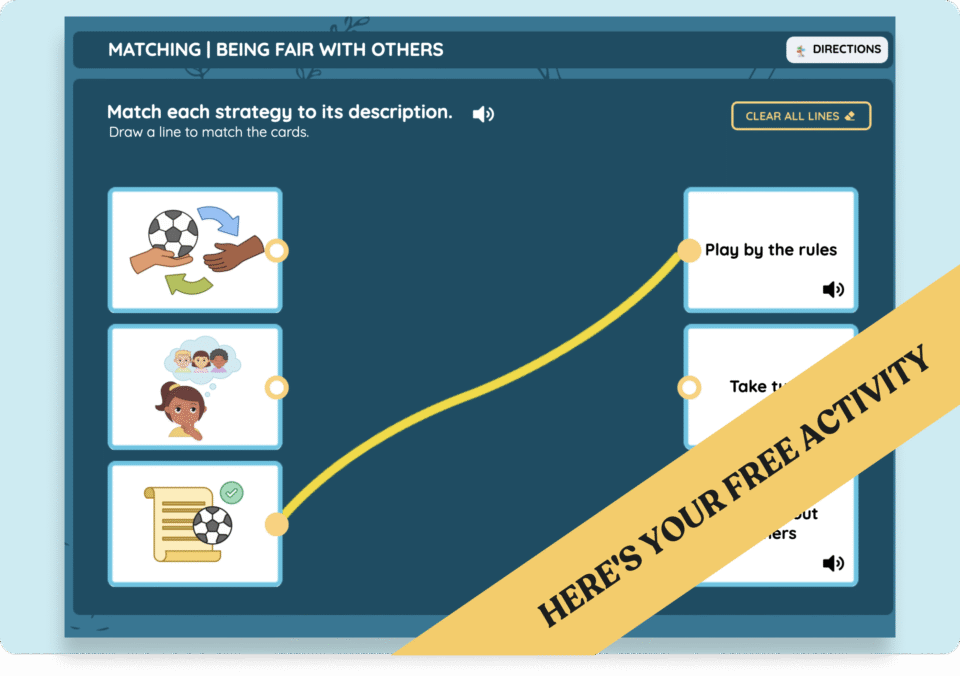Teaching Students to Become Social Chameleons: Adapting to Different Situations
Get free social skills materials
No-prep lessons on self-regulation, emotional recognition, conversation skills, and more.
Sign up hereIn today’s world, the ability to adapt to different social situations is essential for success. This is especially true for students in Special Education, who may face unique challenges when navigating various environments. By teaching them to become Social Chameleons, we can empower them to adapt their behaviors, blend into any situation, and thrive both socially and emotionally.
Introduction
As educators, we can help our students develop the skills they need to become Social Chameleons. This involves teaching them to:
- Tune In to their surroundings and observe the overall energy and mood of the people present
- Consider Time and Place by asking themselves, “What actions are best for this time and place? What are the rules?”
- Visualize the event and plan how they will act based on their needs and the context
- Use Positive Self-talk to calm their nerves and boost their confidence in new situations
No-Prep Activity
A simple activity to help students practice being Social Chameleons is the “Role-Play Scenario” game. This requires no preparation or materials and can be easily adapted to suit the specific needs of your students. Follow these steps:
- Divide the students into pairs or small groups.
- Assign each pair or group a different social situation (e.g., attending a birthday party, joining a new club, or presenting in front of the class).
- Give the students a few minutes to discuss and plan how they will adapt their behavior to fit the assigned situation.
- Have each pair or group act out their scenario in front of the class, demonstrating how they would behave as Social Chameleons.
- After each performance, encourage the class to provide constructive feedback on how well the students adapted to the situation and suggest any improvements.
Discussion Questions
After completing the activity, use these questions to stimulate further discussions:
- What are some examples of situations where being a Social Chameleon is beneficial?
- How can practicing being a Social Chameleon help you build better relationships with others?
- What challenges might students in Special Education face when trying to adapt to different social situations? How can we support them in overcoming these challenges?
- How can we use Positive Self-talk to boost our confidence and reduce anxiety in new situations?
- What are some strategies for determining the appropriate behavior for a specific time and place?
Related Skills
Developing the ability to become a Social Chameleon is closely linked to several other essential skills for students, including:
- Active listening
- Empathy
- Self-awareness
- Problem-solving
- Assertiveness
Next Steps
Teaching students to become Social Chameleons is a vital aspect of their social-emotional development. To access more resources and activities to help your students develop this skill and others, sign up for free sample materials at Everyday Speech. By incorporating these tools into your classroom, you can empower your students to confidently navigate the social world and achieve success in all areas of their lives.

